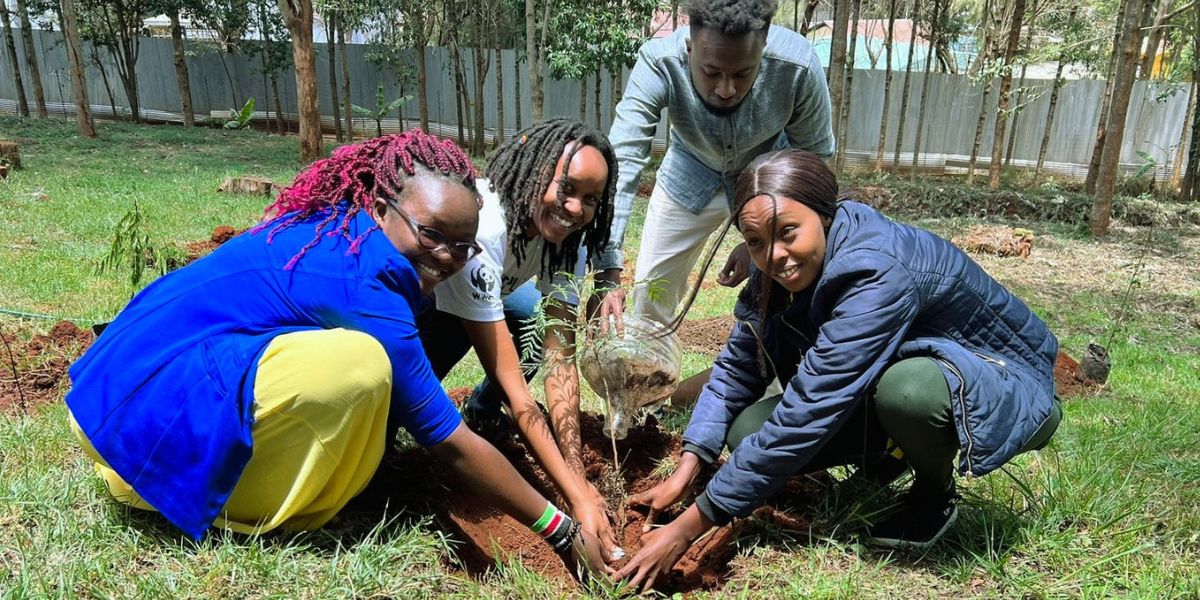Cover Photo: Cynesa.
From 6 to 18 November 2022, the 27th UN Climate Change Conference of the Parties (COP27) took place in Sharm El-Sheikh, Egypt. COP27 was supposed to be an African COP, one that supports the rights of the Afrincan People for a sustainable future and a just and clean energy transition. However, the presence of lobbyists during the negotiations influenced the final text, which is weak in promoting the phase out of fossil fuels. Our partner CYNESA was present and used their voice to demand crucial climate action for the future of the African youth.
Interview by Carmen Contreras, Communications Officer at CIDSE.
I met with Francisca Ziniel after attending an event in the pavilion of her country, Ghana. She welcomed me with a big smile and a dress with typical embroidery from her country. That day the organizers of the pavilion wanted to pay tribute to the customs and traditions of Ghana, which, like other African countries, is already suffering from the strong impacts of climate change.
“Climate change is causing many problems in my country. There is unemployment, food shortages, price increases and limits for people”, she told me when I asked her about the challenges they have faced in recent years. In addition, she explained that those who are most affected are the small-scale farmers in the north of her country, who, besides not having access to water, also fight against illegal mining.
This year, the COP27 presidency announced that for the first time, Loss and Damage would be part of the negotiation agenda. “As a young African, the fact that Loss and Damage is the top priority makes me happy. In previous years, when Africa talked about Loss and Damage, other people thought that it was not a topic for discussion because it was not important, but it became an important issue at the COP and, for us, it is like justice for Africa. Justice for the young”, she reflects.
This was one of the most applauded results among civil society organisations in the final text. However, many raised their voices in protest when they saw the little ambition that existed around decarbonisation, since although it is an act of justice and reparation for the countries that suffer the consequences of the climate crisis and that, in turn, do not are the largest emitters, there is no real commitment to stop global warming.
Watch the full interview below:

